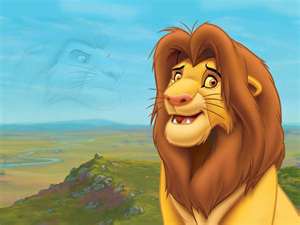
The DiscipleMD
The other night my three-and-a-half year old granddaughter asked me to put on “The Lion King”, so I did. Then she wanted me to watch it with her, which I also did. As I lay on the floor, she curled up next to me and laid her head on my shoulder as we watched it together. You can’t get much better than that! As we watched, my mind swirled back to 1994 when my wife and I, on a Family Home Evening night, took our five kids to the movie theater to view “The Lion King.” It seems like yesterday!
It is rather interesting how the theme and moral of a children’s movie can stay with you. It’s now been more than twenty years since my family sat together to view it but I still recall the moral lesson of its message. I won’t bore you with the details of the entire movie, but I recall that a number of years ago, Sheri Dew, then of the General Relief Society Presidency of the Church, gave a talk in a woman’s conference. In it, she referenced the theme of this now classic Disney movie. She said:
“In The Lion King, the lion cub Simba forsakes his heritage and turns to riotous living after the death of his father, Mufasa. But when that lifestyle fails to satisfy his inner self, Simba turns to the heavens in a moment of desperation. His father responds by appearing to him, and after listening to Simba try to justify his behavior, Mufasa delivers profound parting words: ‘You have forgotten who you are, because you have forgotten me.’” (“Famous Last Words”, Sheri Dew)
Simba had fallen into the lifestyle called “Hakuna Matata” and had forsaken his heritage. “Hakuna Matata” translated means a “life of no worries.” A life of no worries usually indicates a life of no responsibility. It’s a lifestyle centered on the individual. It’s a lifestyle of escape. Sister Dew went on to say:
“As our testimony of God the Father and His Son Christ expands and matures, our view of ourselves and our potential does likewise, and we begin to focus more on life forever than life today. But when we forget our Father and His Son, we forget who we are, and almost inevitably our behavior disappoints us.”
There is no question that a life lived in service to others brings with it challenges and sometimes even sorrow. But it also develops and fosters godly characteristics that are essential to becoming like our Father. Everyone knows that raising a family is filled with joy. Yet, it also is filled with disappointments and trials. Children can bring such happiness, but they can also cause great pain. Being married has it’s own challenges, blessings and opportunities. But it is clear that all those who enter into a lifestyle of service, be it through family life, community or church service, come out for the better on the other side. Or at least, we should. I know we “should” because the Lord has commanded us to live a life of service. In so doing, He knows that we will become like Him, because He is the ultimate servant. What did Christ say when he was here on earth. “But he that is greatest among you shall be your servant.” (Matthew 23:11)
Simba learned that the Hakuna Matata lifestyle was easy and carefree, but it was also a life of emptiness, which in the end produced unhappiness and disappointment. May we live lives of service to our families, and to our fellowmen!


 January 8th, 2021
January 8th, 2021  Scott
Scott 
 Posted in
Posted in  E-mail Address:
E-mail Address: